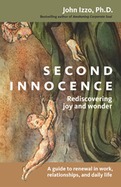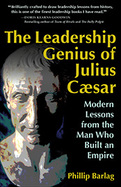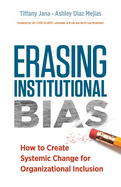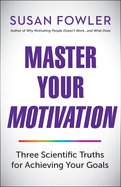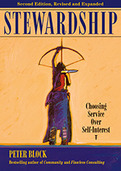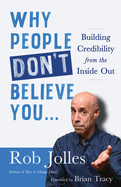2004
"What might happen," John Izzo writes, "if we began to think of innocence as a quality we bring to our lives, a perspective and a way of looking at the world, which is not replaced by experience but which influences our experience? When we choose innocence as a frame to experience the world, the qualities of hope, idealism, openness, and faith nurture the experience of wonder and joy in our lives."
In the tradition of Robert Fulgham and Richard Carlson, Izzo uses his experiences as a son, husband, father, employee, minister, author and corporate speaker to inspire readers to see the world from this new, rejuvenating perspective. Chapters with titles like Full Speed Ahead In The Wrong Direction, Choose Your Glasses Carefully, Getting Past Your Expiration Date, The Burned-Out Buddha and The Power of Not Now explore how to reclaim our innocence in four realms --- daily life, faith, work, and relationships.
"It is not that experience should not shape our idealism", Izzo tells us. "In fact, our initial innocence must be shaped by our experiences. To hold on to our innocence is a life long process and it is our ability to foster the quality of innocence that continues to bring us to the edge of what is possible in our lives and in our communities. That we may choose innocence and idealism while incorporating the harder experiences of living is the core premise of this book."
Both practical and inspiring, Second Innocence combines wonderful stories with an inspiring philosophy to help us maintain our idealism and enthusiasm throughout our lives.
- By the bestselling author of Awakening Corporate Soul (more than 60,000 copies sold)
- Inspires readers to reclaim their idealism and find their sense of wonder again --- without surrendering their critical faculties
- Full of witty and compelling real-life stories
Modern Lessons from the Man Who Built an Empire
“Brilliantly crafted to draw leadership lessons from history, this is one of the finest leadership books I have read.”
—Doris Kearns Goodwin, bestselling author of Team of Rivals and The Bully Pulpit
Leaders are always trying to get better, which is why there is an enormous and growing collection of literature offering the latest leadership paradigm or process. But sometimes the best way to move forward is to look back. Philip Barlag shows us that Julius Caesar is one of the most compelling leaders of the past to study—a man whose approach was surprisingly modern and extraordinarily effective.
History is littered with leaders hopelessly out of touch with their people and ruthlessly pursuing their own ambitions or hedonistic whims. But Caesar, who rose from impoverished beginnings, proved by his words and deeds that he never saw himself as being above the average Roman citizen. And he had an amazing ability to generate loyalty, to turn enemies into allies and allies into devoted followers.
Barlag uses dramatic and colorful incidents from Caesar's career—being held hostage by pirates, charging headlong alone into enemy lines, pardoning people he knew wanted him dead—to illustrate what Caesar can teach leaders today. Central to Barlag's argument is the distinction between force and power. Caesar avoided using brute force on his followers, understanding that fear never generates genuine loyalty. He exercised a power deeply rooted in his demonstrated personal integrity and his intuitive understanding of people's deepest needs and motivations. His supporters followed him because they wanted to, not because they were compelled to. Over 2,000 years after Caesar's death, this is still the kind of loyalty every leader wants to inspire. Barlag shows how anyone can learn to lead like Caesar.
Building upon the revelatory power of her book Overcoming Bias, which addressed managing individual and interpersonal bias, Erasing Institutional Bias scales up the framework to impact systemic change in organizations. Jana and coauthor Ashley Diaz Mejias bring together in-depth research on how biases become embedded into workplace cultures with practical and engaging tools that will mobilize readers toward action. They confront specific topics such as racism, sexism, hiring and advancement bias and retribution bias, meaning when organizations develop a culture of aggression, and offer solutions for identifying and controlling them.
This book urges readers to ask questions such as, “Are we attempting to create systems in which all people can thrive? What kind of world and what kind of workplaces are we cultivating?” These questions, the authors say, must first be answered by ourselves, recognizing our own role in perpetuating harmful biases that come to define institutions.
In a world divided, Erasing Institutional Bias is designed to raise awareness about imbalances and help us hold ourselves accountable for creating a world that works for everyone. Each of us can evaluate our own current role in perpetuating systemic bias and define our new role in breaking it down. Jana and Mejias inspire and equip us so that we can all affect organizational change, together.
Motivation is at the heart of everything you do and everything you want to do but don't. Unfortunately, the ways we typically motivate ourselves don't work. Relying on sheer determination eventually becomes exhausting—it's not sustainable. And even setting goals can backfire—if you're not setting them for the right reasons.
Susan Fowler says motivation is energy, and what matters is the quality, not the quantity. Traditional “motivators” such as fear, guilt, or the promise of a reward provide low-quality, short-term energy. Drawing on the latest empirical research, she proves that high-quality, optimal motivation is a skill that you can learn and apply.
Science tells us that satisfying three basic needs—for choice, connection, and competence—is essential to optimal motivation. You need to feel like you've picked your path, not that you're being driven down it. Your goal should be linked to people or a purpose meaningful to you. And you want to continually learn and grow.
Through practical exercises and eye-opening stories, Fowler shows you how to identify and shift the quality of your motivation. The skill to master your motivation is important—it may be your greatest opportunity to evolve, grow in wisdom, and be the light the world so desperately needs.
2013
We still face the challenge of fostering ownership and accountability throughout our organizations. Despite all the evidence calling for profound change, most organizations still rely on patriarchy and control as their core form of governance. The result is that they stifle initiative and spirit and alienate people from the work they do. This in the face of an increasing need to find ways to be responsive to customers and the wider community.
Peter Block insists that what is required is a dramatic shift in how we distribute power, privilege, and the control of money. “Stewardship,” he writes, “means giving people at the bottom and the boundaries of the organization choice over how to serve a customer, a citizen, a community. It is the willingness to be accountable for the well-being of the larger organization by operating in service, rather than in control, of those around us.”
Block has revised and updated the book throughout, including a new introduction addressing what has changed—and what hasn't—in the twenty years since the book was published and a new chapter on applying stewardship to the common good of the wider community. He covers both the theory of stewardship (in particular how it ameliorates the shortcomings of traditional leadership) and the practice (how it transforms every function and department for the better). And he offers tactical advice as well on gearing up to implement these reforms.
Jolles argues that credibility is as much about attitude as it is about aptitude. So-called “soft skills” like pitch, pace, and tone of voice, are actually some of the most crucial factors in determining how people perceive us. As he puts it, “it's not the words, it's the tune” that really makes us memorable and credible.
This book is about finding the necessary magic to help others believe you. It requires an unshakable belief in yourself, so Jolles starts there. With that as a solid foundation, you can move on to the specific tactics and practices that will make you credible and convincing. But these can be tough to practice in the face of the inevitable setbacks we all face, so he also offers advice on maintaining courage and confidence when doubt naturally creeps in. And he concludes with a discussion of sustaining your newfound credibility for the long haul.
There isn't a soul on earth who hasn't questioned themselves at some point. And most of us are just one or two brutal rejections away from questioning all that we are. Why People Don't Believe You helps readers cultivate a robust mental framework and a set of what Jolles calls “performance skills” to tackle these doubts. You are good enough –and after reading this stirring book, you'll be ready to make the world believe that as well.


